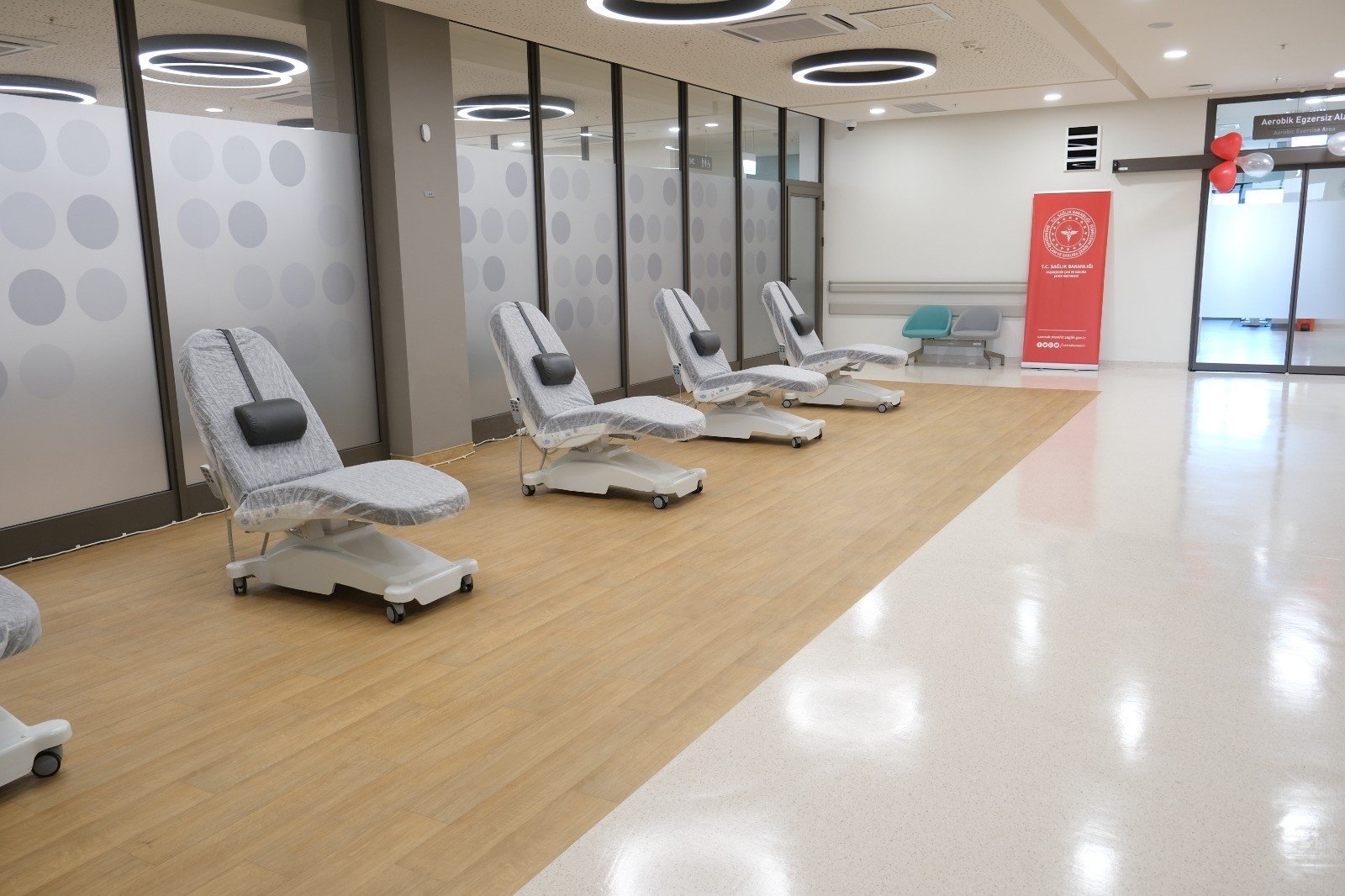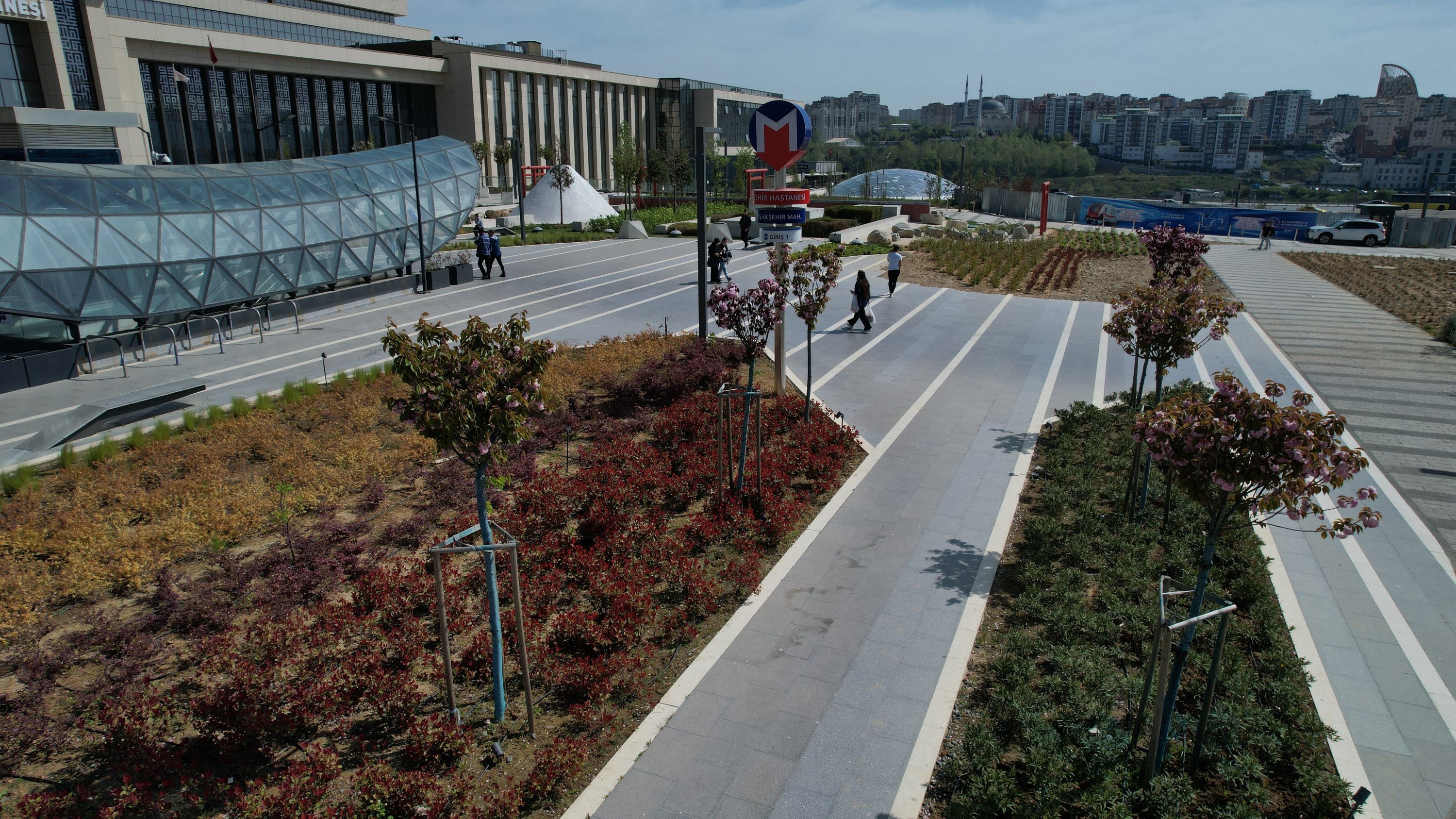© Turkuvaz Haberleşme ve Yayıncılık 2024
Başakşehir Çam and Sakura City Hospital celebrated its fourth anniversary as a remarkable giant health care complex offering patients a wide variety of specialized centers.
Professor Dr. Necdet Sağlam, coordinating chief physician of the hospital, said: "City hospitals see significant demand from our people because we provide quality, safe and fast health care services."
Constructed within the framework of the public-private partnership (PPP) model, Başakşehir Çam and Sakura City Hospital serves a vast area exceeding 1 million square meters, catering to many local and foreign individuals. The hospital's first phase was opened on April 20, 2020, with the official opening ceremony held on May 21, attended by President Recep Tayyip Erdoğan and via videoconference by Prime Minister Shinzo Abe of Japan.
The massive health care complex houses various specialized hospitals, including the Pediatric Hospital, Physical Therapy and Rehabilitation Hospital, General Hospital, Women's Health and Maternity Hospital, Cardiovascular Hospital, Oncology Hospital, Neurology and Orthopedics Hospital and Psychiatric Hospital, and it played a significant role during the COVID-19 pandemic and earthquake incidents.
The 2,068 seismic isolators in the main hospital building enable the continuity of operations during and after a possible earthquake. At the same time, many specialized centers are located within the health hub, with more openings underway. In this context, the opening of the High-Risk Cardiopulmonary Rehabilitation Unit, which offers comprehensive care to patients, was celebrated.
The opening ceremony was attended by Sağlam, Professor Dr. Mehmet Emin Kalkan, chief physician of the cardiovascular hospital, Professor Dr. Kartal Emre Aslanger, responsible physician of the high-risk cardiopulmonary rehabilitation unit and many other health care professionals. It was emphasized during the opening that multidisciplinary approaches are crucial for patients, and after cutting the ribbon, a tour of the unit was conducted.

"City hospitals are also highly favored by our people," Sağlam said, emphasizing the exemplary work accomplished by the institutions.
"Together with our colleagues, we have opened the Cardiopulmonary Rehabilitation Center; in this center, a serious rehabilitation process is initiated for our high-risk patients either before or after surgery or for patients undergoing medical treatment through a multidisciplinary approach, and patient compliance is monitored. In this regard, we believe it will benefit our patients. There is no other center like this in terms of capacity and quality, where our patients are also psychologically supported."
"In general, the logic of city hospitals is that once our patients apply to us, they come with the hope of resolving all their ailments in these centers. We, in turn, create these conditions within the framework of the opportunities provided by the Ministry of Health to provide these facilities. We are also planning to open other centers, of course, such as intensive care units, wards and operating theaters, and we are conducting significant infrastructure works in terms of specialization."
"City hospitals are thus highly favored by our people in this regard as well. Because we provide quality, safe and fast health care services," he added.

Providing information about the High-Risk Cardiopulmonary Rehabilitation Unit, Aslanger, stated: "We approach patients by conducting a risk assessment. Cardiac rehabilitation is a practice performed by physiotherapists in physiotherapy units. We admit patients who fall into a certain risk category here. The patients we receive here are mostly those with heart failure and coronary heart disease. These patients generally need to undergo a treatment process of at least 12 weeks, and if necessary, we can extend it to even longer periods."
"They need to apply the positive habits they acquire here to their lives; we have some studies related to that. The idea of rehabilitation is not only to treat the condition after the disease has emerged but also to spread the preventive part of this rehabilitation idea to the whole society; besides cardiology, we have colleagues who specialize in cardiovascular surgery, chest diseases, physiotherapy and rehabilitation, our nurses, physiotherapists, dieticians and our colleagues in the smoking cessation clinic who work on technical matters. We see that in places where this multidisciplinary work is done, we can greatly benefit patients. In this regard, we hope it sets an example," he continued.
Furthermore, patients evaluated by cardiologists, physiotherapists, chest disease specialists and physicians from the smoking cessation clinic, along with dietitians, psychologists and heart failure/rehabilitation nurses, participate in rehabilitation processes with a holistic approach under the supervision of expert physiotherapists.
High-risk patients with various conditions perform their exercises under close monitoring while continuing with stretching, weight exercises, cycling, treadmill, and arm ergometer equipment, and exercise programs specially designed for them. They also receive services such as information about medication, psychological support and smoking cessation counseling.
